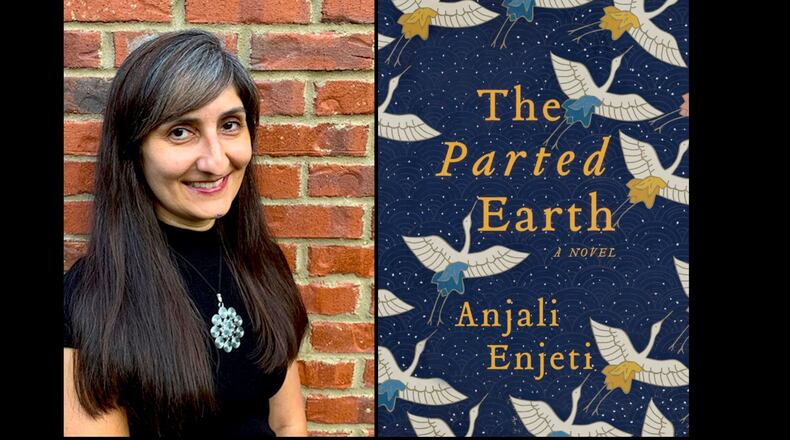In 1947, the British withdrew from India, and the subcontinent was divided into Hindu-majority India and Muslim-majority Pakistan in what is known as Partition. More than 15 million people tore themselves away from their historical communities to re-settle, and more than a million people died in brutal massacres on both sides. To many people of South Asian heritage, Partition is as painful and important an historical event as the Holocaust is to Jews.
In Johns Creek author Anjali Enjeti’s debut novel, “The Parted Earth,” those events provide the foundation for a multi-generational saga of family members cut off from their pasts, struggling to make sense of their identities.
In the novel’s long, sharply observed opening section, Deepa, 16, is a bright, privileged teen whose parents run a medical clinic in Delhi. Her beloved Papa-ji is wise about many things, except, it turns out, the one thing that would protect his family: leaving Delhi to avoid the random violence kicking up everywhere. She has a brief, sweet romance with a local boy (she is Hindu, he is Muslim), and then everything turns very bad, very fast.
Jump to Atlanta in 2016. Deepa’s thoroughly American granddaughter Shan knows almost nothing of her past, but she knows her present is falling apart, following a miscarriage and the realization her husband is a narcissistic gambling addict.
Enjeti makes many such jump cuts in time and locale, and they can be jarring, as they frequently are with this type of narrative structure, until they start to fall into place.
An older neighbor befriends Shan and offers her the comforting elder wisdom and connection to her roots Shan doesn’t know she needs until she starts receiving it.
Shan realizes her identity has become “defined by the holes family members left behind” and sets out to fill those holes. After much research, travel and serendipity, she learns what happened to Deepa and her Delhi boyfriend, and the sacrifices her ancestors made for her and others.
“Every family has untold stories buried in the fog of the past,” says Henry Louis Gates Jr. on his PBS series “Finding Your Roots.” Through Shan’s diligence, the fog is dispelled and Deepa’s full story is told. Being told, it can be properly valued. The jumpy structure pays off, and we see the whole tapestry, and it is well-woven.
FICTION
“The Parted Earth”
by Anjali Enjeti
Hub City Press
254 pages. $26
About the Author
The Latest
Featured


